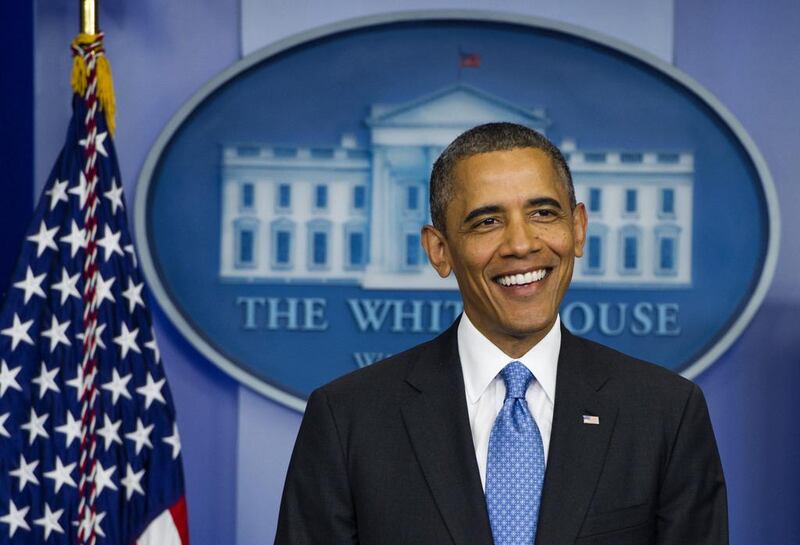Relief at a deal to avert a debt default in the United States faded yesterday as fresh anxiety hit markets about the risk of a repeat of the stand-off in January.
The short-lived rally followed Congress approving late on Wednesday a deal, which funds the US government until January 15 and raises the debt ceiling until February 7.
But the short-term nature of the agreement and the continuing gulf between Democrats and Republicans on spending and deficits issues remains a worry for investors worldwide.
“We need to know more on the details of the agreement, besides that it looks like a short-term fix,” said Tariq Qaqish, the head of asset management at Al Mal Capital, a Dubai-based investment bank.
“We will go back again to the same scenario in a few months, which is not healthy for the US government, which needs to stabilise and focus on unemployment and growth.”
The US Dollar Index, which tracks the greenback against a basket of currencies, dipped 0.74 per cent to reach 79.87. It had earlier hit a one-month high on news of the fiscal deal.
The dollar’s downfall was further hastened by a move by the Chinese credit agency Dagong to downgrade the US sovereign rating to A minus from A, with a negative outlook.
In financial markets, the FTSEurofirst 300 Index of Europe’s biggest stocks was down 0.03 per in afternoon trading in London to 1,265. In the US, S&P 500 futures expiring in December dipped 0.1 per cent to 1,711.8 in early trading. It followed the benchmark S&P closing within 0.3 per cent of its record on Wednesday. Analysts said the sell-off was partly due to profit-taking.
Still, local markets are likely to react positively when they reopen after the Eid holiday on Sunday, said brokers. “Even if it’s for a short period of time, the compromise reached is something good for everybody: US economy, US markets, global economy and global markets,” said Fathi Ben Grira, the chief executive of Menacorp, an Abu Dhabi-based finance company.
The deal signed by Barack Obama, the US president, ended a 16-day partial shutdown of the federal government, which started when Congress failed to agree on a budget by October 1.
The breakthrough was widely welcomed by international leaders following concerns that no deal would have threatened the US and global economic recovery. But the IMF also warned about the challenges ahead in the coming months.
“Looking forward, it will be essential to reduce uncertainty surrounding the conduct of fiscal policy by raising the debt limit in a more durable manner,” said Christine Lagarde, the IMF managing director.
Concerns have also emerged about the impact the recent partial government shutdown may have on corporate results.
Tata Consulting Services, Asia’s largest software exporter by market value, yesterday forecast “softness” in third-quarter earnings, citing the hit to government contracts.
“People freeze and stop spending when the government shuts down. No one is immune,” the company’s chief financial officer Rajesh Gopinathan was quoted as saying by Bloomberg.
Economists said the disruption caused by the shutdown was likely to partly dent US economic output during the quarter, as well as delaying expectations of the Federal Reserve’s tapering of monetary stimulus. Observers had believed the Fed could begin to unwind its quantitative easing programme as early as December.
Reflecting anxiety about the future outlook, gold, sometimes viewed as a haven investment, rallied by 2.7 per cent to $1,317 an ounce. North Sea Brent crude rose 0.82 per cent to $110.86 a barrel.
October US treasury bill yields fell by more than two thirds to 0.21 per cent, while 10-year treasury note yields fell 5 basis points to 2.62 per cent.
tarnold@thenational.ae
halsayegh@thenational.ae





